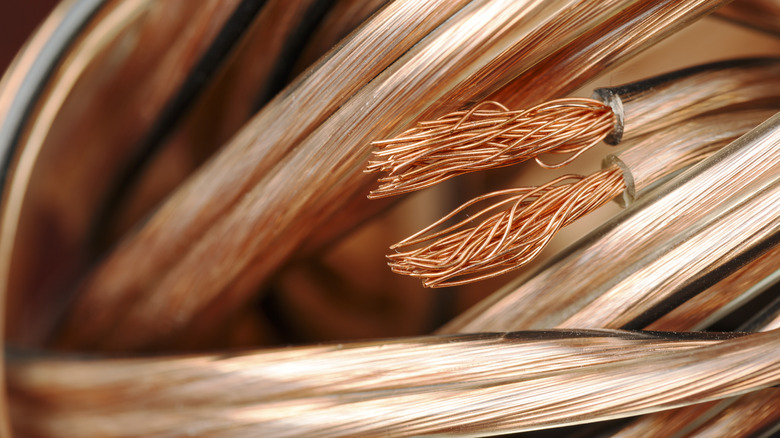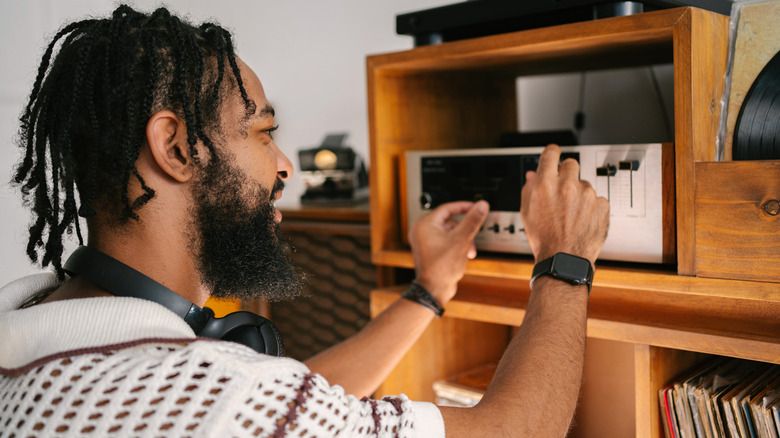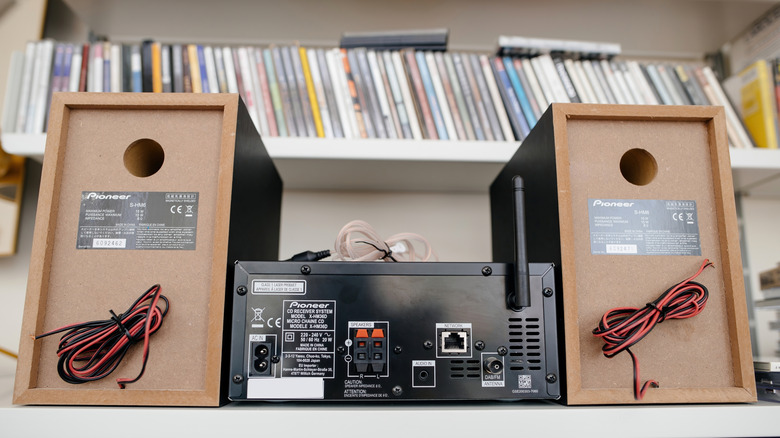12 Vs 14 Gauge Speaker Wire: Which Do Audio Experts Say Is Best?
Most people today use wireless setups for music and entertainment, such as the numerous solid Bluetooth speakers available on the market. However, among the many audiophiles are those who listen to music the old-school way, via passive speakers and amps using wires. To them, wires matter. It can be both a topic of debate and a point of confusion for those new to the hobby, with many different wire gauges to choose from. In general terms, there is a belief that a thin wire is of poor quality, while a thicker wire will have higher sound quality.
It's not so simple. Different configurations of wire metals, treatments, attachment accessories, and insulation affect the quality of the wire. For example, gold-plated audio components are so common because of gold's amazing conductivity. On a deeper level, it comes down to electrical resistance and how signals travel through the wires. Other considerations include the length of the wire running from the amp to the speaker, equidistance wire lengths from each speaker to the receiver, speaker impedance, and the power of the amplifier. According to experts, for the vast majority of home audio enthusiasts, 14-gauge speaker wire is the best option. It represents a sweet spot of affordability, performance, and flexibility, but how does 14-gauge speaker wire compare to its 12-gauge counterpart?
How to gauge it
The biggest difference between the two is that 12-gauge wire is thicker, which offers lower resistance and can be helpful when you need to run a really long length of wire, allowing you to reduce signal loss and maintain better sound quality. For lengths of 25 feet and under, 14-gauge is sufficient, while lengths from 25 to 50 feet might warrant spending extra on 12-gauge. 12-gauge wire is also recommended for use in high-powered setups with power-thirsty amps and speakers.
Ideally, you should pair the wire with the speaker's impedance. Commercial speakers typically operate at 4, 6, or 8 ohms, but this is rather subjective. There is also the issue of the placebo effect, where a consumer might think that a costlier wire sounds better because it's marketed as such. But for most applications, especially in regular-sized rooms, 14-gauge wire should get you where you need to be without breaking the bank. As for the cost itself, the GEARit brand sells 50 feet of 12-gauge, copper-clad speaker wire for $28.48 on Amazon, while its 14-gauge equivalent is almost ten dollars cheaper, at $19.95.
Sound advice
The only thing left to consider is the cable materials, as not all speaker wires are the same. The two most common choices on the market are bare copper wire and copper-clad aluminum (CCA); the former offers great conductivity and less signal loss, while the latter is cheaper but has a higher resistance than pure copper, leading to potential power loss over a long distance. If you truly believe that your space and equipment specifications require something more robust, go with 12-gauge. But using 14-gauge speaker wire with high-quality, pure-strand copper puts most in that sweet spot of all-around performance without overkill.
Before online shopping became king, many home audio enthusiasts fell victim to big-box store salespeople hawking wildly expensive wires with claims of audiophile performance. Many of those speaker wires and cables don't hold up under scrutiny, and it's generally recommended to only allocate 5% to 7% of your hi-fi setup budget towards speaker connectivity anyway, per an Audioholics article from 2004, which still holds up as sound advice. The fact of the matter is that a good-quality 14-gauge speaker wire should keep most home audio enthusiasts happy without putting a serious dent in your budget.


